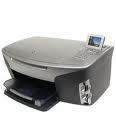I like to listen to a couple radio shows that stream on the internet, so I am putting all that unused power in my little'ol server to use. I tried to use Mplayer and VLC to record streams, but they seemed too sensitive to connection issues for my taste, so I decided on something made just for the purpose. Mimms. After recording and converting the file to mp3, I save it to a couple of places, like my Dropbox... Now I don't have to remember to sync the player before work.
- sudo nano /etc/apt/sources.list
- add the following to the end of the file
deb http://ppa.launchpad.net/fkrull/deadsnakes/ubuntu lucid main
deb-src http://ppa.launchpad.net/fkrull/deadsnakes/ubuntu lucid main
- press
O to save (thats the letter) - press
X to exit - Now get the packages with the following
Now here is an example of my script I use to record a radio show:
#record an audio mms stream and convert it to mp3
#then copy them to a network share, then move them to my Dropbox
#Scott Goodgame 2010
#
#!/bin/sh
TIMESTAMP=$(date +”%b-%d-%y”)
#(use mimms to record the show for 243 minutes)
mimms -t 243 "mms://AStreamNameGoesHere" /home/jack/radio-to-radio-$TIMESTAMP
#convert asf to wav and then from wav to mp3 (if anybody has a better way to do this, let me know!)
mplayer /home/jack/radio-to-radio-$TIMESTAMP -ao pcm:file=/home/jack/radio-to-radio-$TIMESTAMP.wav
lame /home/jack/radio-to-radio-$TIMESTAMP.wav /home/jack/radio-to-radio-$TIMESTAMP.mp3
#copy the file to the network share, move it to a daily directory and move it to my dropbox, then clean up the mess
cp radio-to-radio-$TIMESTAMP.mp3 /home/jack/Dropbox
cp radio-to-radio-$TIMESTAMP.mp3 /media/other/Audio/Today
mv radio-to-radio-$TIMESTAMP.mp3 /media/other/Audio/Podcasts/radio
rm /home/jack/radio-to-radio-$TIMESTAMP
rm /home/jack/radio-to-radio-$TIMESTAMP.wav
Now, just paste that into a file, put a stream in the mimms line and edit the time on the same line.
My particular show plays every night, so I made it a cron job to run every night- here is the relevant line from my crontab:
# m h dom mon dow command
57 00 * * * /home/jack/bin/record-raido-show
My show starts at 1am, but I start the job early because sometimes it takes a few seconds for mimms to connect and I don't like to miss anything.
I was going to tell you about editing the crontab file, but why reinvent the wheel? Here is a really nice link to get you started....
http://ubuntuforums.org/showthread.php?t=102626
Happy recording!
Scott

